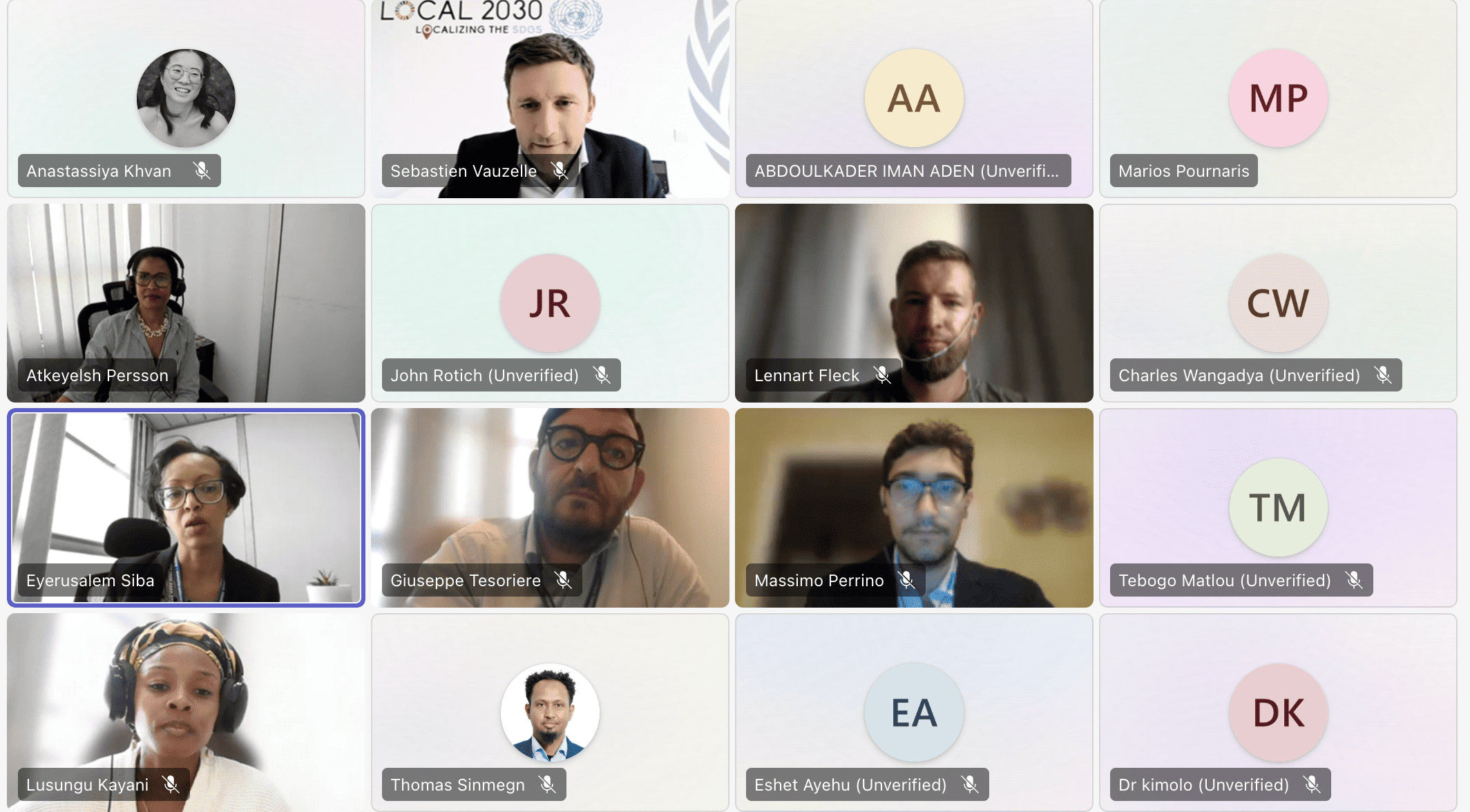
As part of the “Road to Seville: The Local Way” strategy, the Africa Regional Consultation — co-organized by the United Nations Economic Commission for Africa, the United Nations Local2030 Coalition, and the Global Taskforce of Local and Regional Governments on 2 May — brought together diverse local leaders, institutions, and partners to spotlight bold innovations in local financing across the continent.
From fiscal decentralization to green bonds and community-based co-financing, participants highlighted how local governments and stakeholders are not just responding to challenges — they are reshaping the development finance agenda for the Fourth International Conference on Financing for Development (FfD4) and beyond.
Highlights from the discussion:
Community-Driven Development Financing, Zimbabwe
Speaker: Silosious Chad Turuka, Deputy Director, Sustainable Development Goals and Agenda 2063 Coordination
Zimbabwe is scaling up intergovernmental fiscal transfers, performance-based grants, and community co-financing to empower local authorities and citizens to lead their own development priorities — one clinic, school, and borehole at a time.
Property Tax Reform and Revenue Innovation, Addis Ababa
Speaker: Abdulkadir Redwan, Bureau of Finance
In just five years, Addis Ababa has increased local revenue nearly eightfold through political leadership, digitized systems, and property tax reform — setting an inspiring benchmark for fiscal autonomy across the continent.
Green Bonds and Urban Resilience, Nairobi City County
Speaker: John Rotich, Senior Finance Officer
Nairobi is pioneering Sustainable Development Goal-linked investments in school feeding, climate adaptation, and public transport — mobilizing green bonds and digitizing all 150 revenue streams to build a more inclusive, sustainable capital city.
Key insights from speakers and partners:
Charles Wangadya (African Union Commission): Localization isn’t optional — financing must reach the last mile. Legal reforms are essential to unlock subnational borrowing and municipal credit enhancement.
Tebogo Matlou and Lerato Phasha (South African Local Government Association): Local governments face a 58 billion rand funding gap. South Africa’s Voluntary Subnational Reviews show how inclusive reporting, public-private partnerships, and fiscal frameworks must evolve to support local Sustainable Development Goal delivery.
Sébastien Vauzelle (United Nations Local2030 Coalition): Africa’s place-based realities demand scalable solutions now. Localization is no longer a choice — it is a necessity for equitable development.
Atkeyelsh (Kitty) Persson (United Nations Economic Commission for Africa): Domestic resource mobilization is central to Africa’s development — and must be matched by capacity-building and transparency.
As the Road to Seville moves forward, Africa’s experience sends a clear message: localizing finance isn’t just about balancing budgets — it’s about empowering communities, aligning efforts, and driving real change on the ground. With local leaders and partners reshaping the development finance agenda, the continent is charting a path toward a more inclusive, resilient, and sustainable future.

Comments